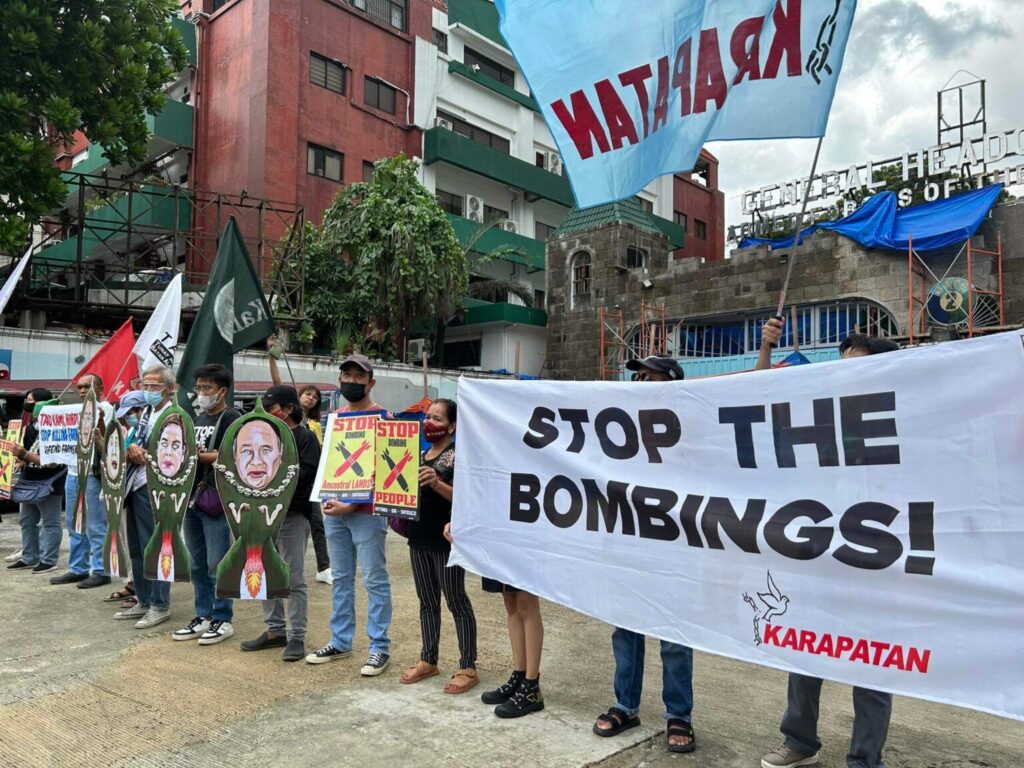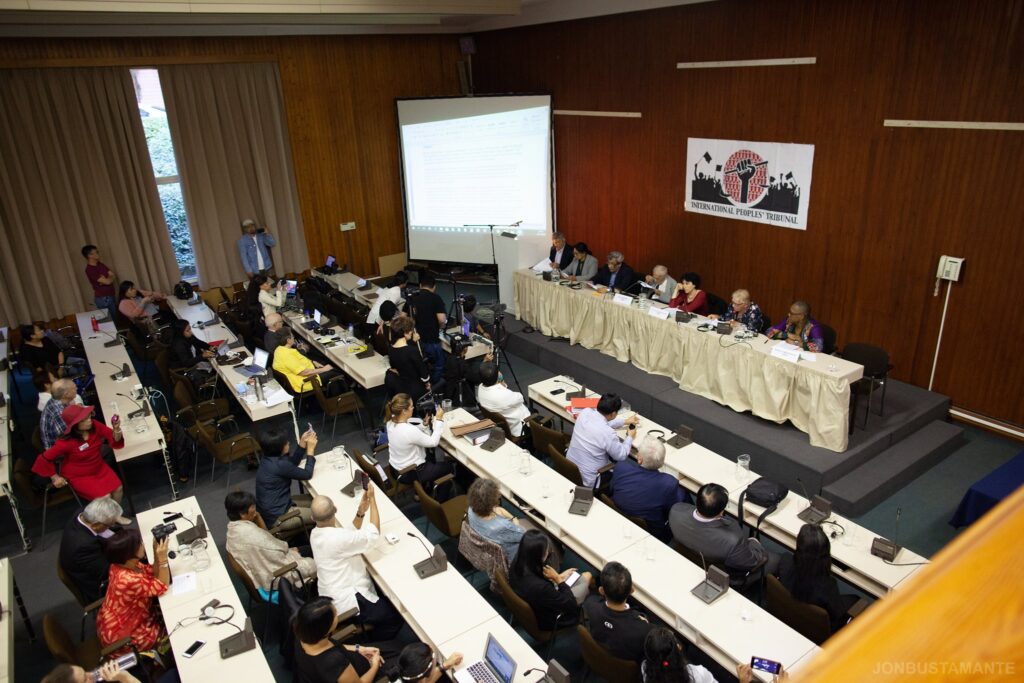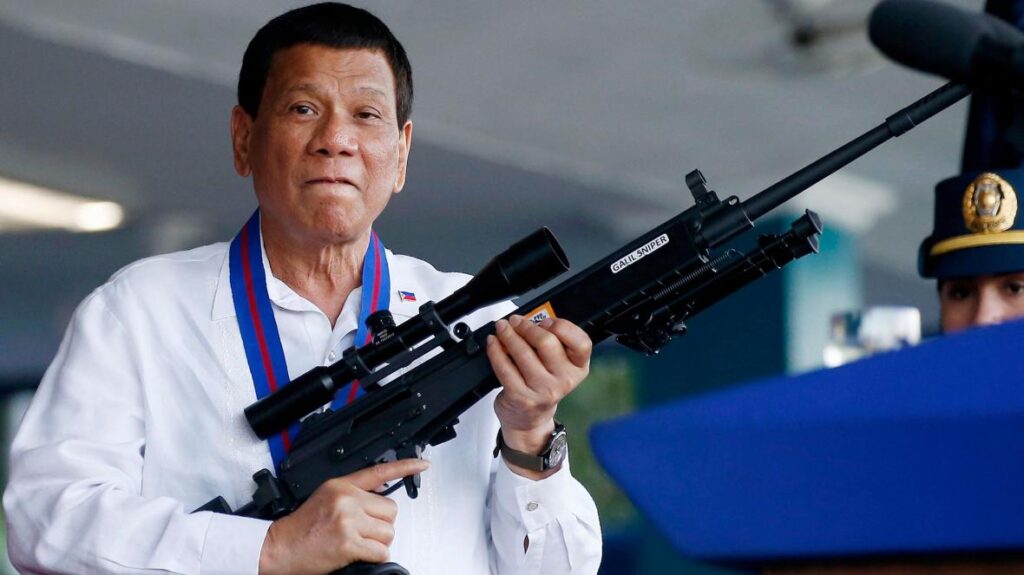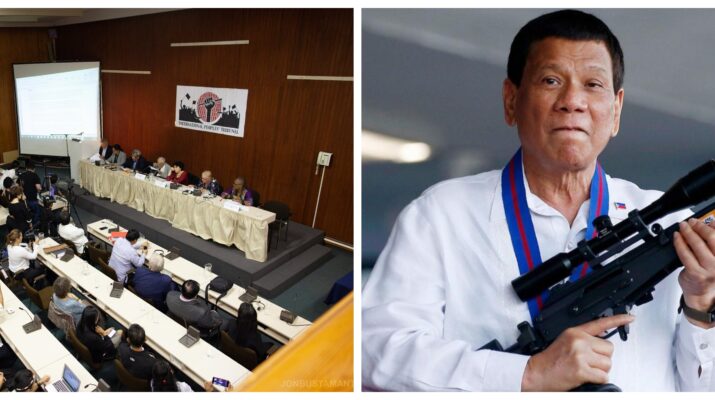An international tribunal was convened this week, comprising of key judicial practitioners from various countries.
Its purpose? To scrutinize alleged crimes against humanity committed by the current Philippine government under President Bongbong Marcos Jr. and his predecessor, former President Rodrigo Duterte.

The International People’s Tribunal (IPT) gathered this past week in Brussels to investigate and address alleged war crimes committed by the US-supported Marcos and Duterte regimes. It provides a platform for victims of these crimes and their advocates to present evidence and legal arguments to an international judicial body.
Although a quasi-legal tribunal, the IPT follows a structured legal process and guided by the standards of due process and credible evidence. The proceedings aim to ensure a fair and impartial process by appointing a diverse panel of expert jurors from around the world; the defendants have also been provided an opportunity to be heard – although their appearance at the Tribunal is doubtful.
Crimes against humanity committed by the Duterte regime, and are continually being perpetrated by the current Marcos Jr. regime, are well-documented. These offences range from brutal repression of activists and trade unionists, to deliberate militarization of civilian communities – particularly that of indigenous peoples (IPs).
In addition to investigating Marcos Jr. and Duterte, the IPT will also scrutinize the role of the United States government in supporting and enabling these war crimes, under the guise of ‘counterinsurgency’ operations. Through military aid, including providing training and technical support to the Philippine military, successive U.S. administrations, have contributed to the perpetuation of violence and impunity in the Philippines.

In the spirit of internationalism, condemnation by foreign governments should pressure despotic and tyrannical governments to uphold international humanitarian laws and respect human rights. Because of the U.S. government’s support for successive Philippine leaders, including Duterte and Marcos Jr., their crimes have gone unabated and have only intensified.
American imperialist support for despotic regimes is not new in history. Since the development of the “Small Wars Doctrine” by the U.S. Marine Corps in 1940, the American military has assisted its international allies in conducting covert and often extrajudicial methods of warfare.
Cooperation between military and civilian agencies is a key part of this Doctrine, which includes military integration in civilian communities. The deliberate militarization of civilian communities is intended to intimidate peoples from supporting or assisting armed insurgencies.
Conducting psychological warfare is an integral part of the Small Wars Doctrine, designed to influence the civilian population with the intention of depriving support to the insurgency.
However, this also leaves civilians susceptible to abuses by the military. Often times, campaigns against the armed rebellion have also impacted legitimate, unarmed activists simply for having parallel views to the underground rebellion.

Instead of pressuring Philippine authorities into giving justice to these victims, U.S. government support has instead emboldened Philippine regimes to commit further acts of violence against its own people.
Although the command of the two Philippine presidents were crucial in perpetrating those war crimes, we must not overlook the United States’ culpability in enabling those crimes against humanity to occur.
By also putting the U.S. government under the spotlight, the IPT aims to demonstrate how American imperialist policies perpetuate these war crimes. Rather than ‘isolated incidents’, as justified by Philippine state agents, civilian casualties and displacements of entire communities are actually intentional products of the counterinsurgency operations.
The Tribunal therefore, is not only a means of putting the U.S. imperialist machine and its Philippine government agents on notice, but will also inform the rest of the world on the tactics imperialists use against legitimate liberation movements elsewhere.
The International Peoples Tribunal runs from 17 to 18 May and is convened by the International Association of Democratic Lawyers (IADL) and the Friends of the Filipino People in Struggle (FFPS). You can follow updates from the Tribunal at: https://peoplestribunal.net/

